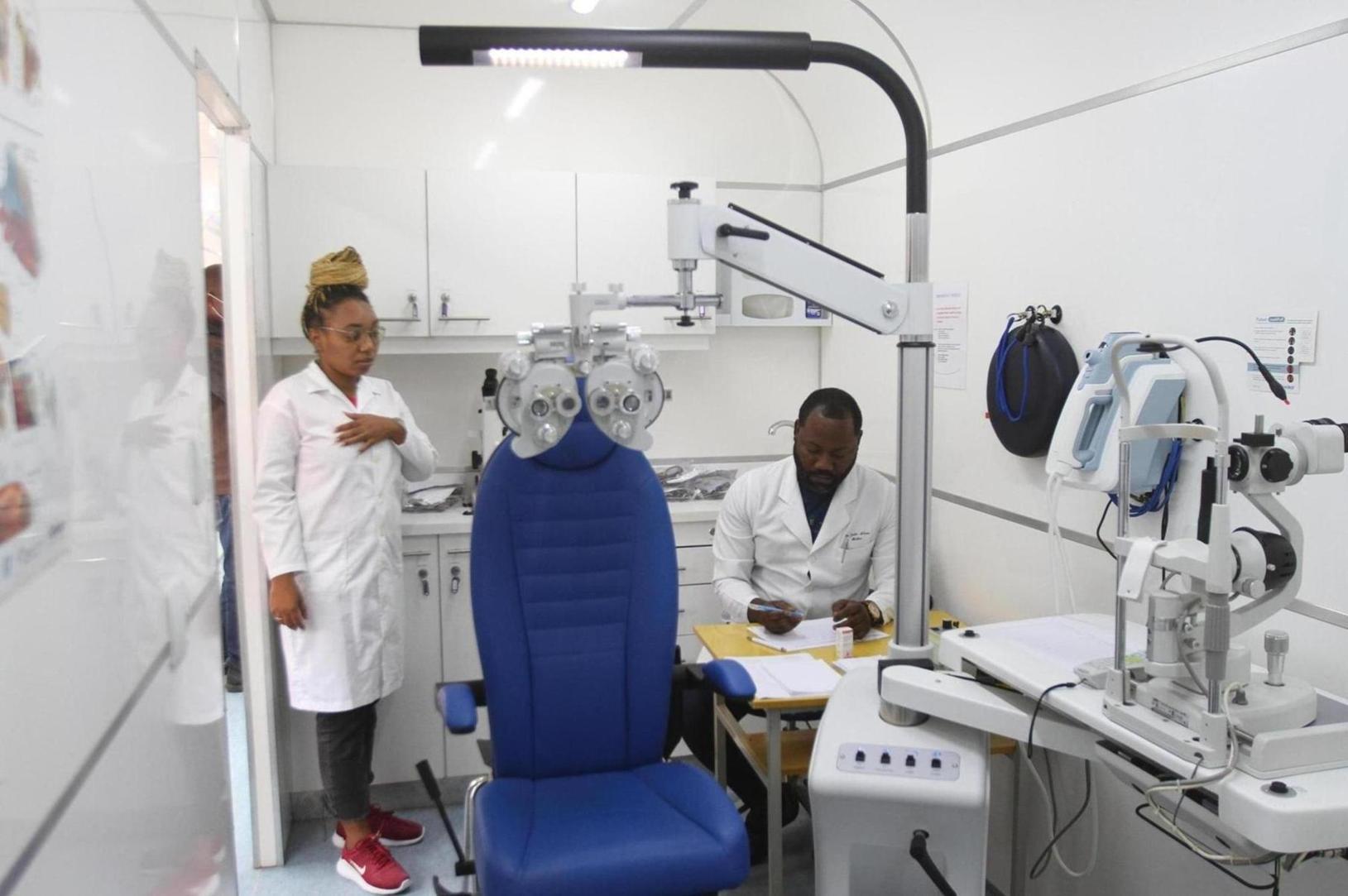Africa-Press – Angola. The deputy governor for the Political, Social and Economic sector of Benguela province, Lídia Amaro, highlighted, this Saturday, the importance of the circulation of clinical carriages of the Tata Uhayele Project, in the promotion and prevention of health in remote communities.
The minister, who participated in the opening act of the first medical consultations in the two clinical carriages, stopped at Calenguer station, Wiyangombe commune, Caimbambo municipality, recalled that health prevention has been one of the main challenges of the Government.
The Tata Uhayele Project, now launched by the Ngana Zenza Foundation for Community Development – FDC, believes Lídia Amaro, will make it possible to expand the health system and provide greater and better medical and medication assistance to the population in the areas covered.
Therefore, the vice-governor thanked the gesture of the First Lady of the Republic, Ana Dias Lourenço, for having favored the province of Benguela with the launch of the project “Cuide da Sua Saúde”, translated from Umbundo into Portuguese.
He also points out that the initiative will bring an important component: raising awareness of the population to take care of public goods, valuing and preserving trains more.
“It is a project that will give impetus to the Lobito Corridor and as a Government we are here to support its success”, he expressed.
The adhesion of the users, points out the vice-governor, is good as the project was well conceived for meeting the concerns of the population in terms of health.
And he appealed to other organizations to follow the example of the Ngana Zenza Foundation for Community Development in preparing projects with an impact on the lives of communities, not only in the area of health, but also in social assistance and education.
Training for the humanization of health services is also highlighted by the deputy governor who underlines how important it is that users also have health education.
For his part, the municipal administrator of Caimbambo, José Ferreira, guarantees that the clinical carriages are yet another significant contribution to providing primary health care where there are no health posts and technicians.
That is why he praised the First Lady’s vision of bringing medical and medication services closer to the populations that live along the Benguela Railway, with primacy to Caimbambo.
Population satisfied with clinical carriages
Avelino Miguel, resident of the village of Calenguer, did not hide his satisfaction as soon as he saw a train stopped at the station from afar, with the sole purpose of providing medical assistance to those in need.
He considers that the population of the Wiyangombe commune, mostly peasants, is happy with the health services that are sorely lacking in the village, such as ophthalmology and pediatrics.
Manuela António, a young woman who was waiting her turn in the queue, complained that she had vision problems and that was why she had barely heard about the Tata Uhayel Project and had come to try for a consultation that had been postponed for a long time.
“I think it’s very good. They are doing a beautiful project because it helps people who cannot get an appointment in the city of Benguela”, she noted.
doctors on call
Júlio Abreu, an ophthalmologist and very helpful with the elderly, says it is a unique feeling to be able to meet the Wiyangombe community that does not have specialized health services.
“As a doctor, we must go to the communities for screening and make a diagnosis”, he explained, recounting having diagnosed three patients with cataracts who need surgery at the Benguela Ophthalmological Center, to avoid blindness.
In his view, it is necessary to continue to work in favor of communities to prevent chronic non-communicable diseases, but always striving for humanization.
Clinical analysis technician Joaquim Tchingalule said it was a privilege to be part of an innovative project that brings health to needy communities in the interior of Benguela province.
Meanwhile, pediatrician Bernardete Paulo admits that it is a great asset to be part of the project and help with health care for those who are unable to go to reference hospitals, on the coast of Benguela.
“We are interacting directly with the population to improve health conditions where there is no way for the doctor to reach”, he added, adding that most of the patients evaluated had fever, abdominal pain and cough.
Attention, love and human warmth towards sick children is what the doctor promises, while measuring the body temperature of a child who observes her attentively.
The main objective of the Tata Uhayele Project, an initiative of the Ngana Zenza Foundation for Community Development – FDC, under the aegis of the First Lady of the Republic, Ana Dias Lourenço, is to provide primary health care to vulnerable communities along the road to – Benguela iron.
The two clinical carriages are equipped with offices for pediatrics, general practice, obstetrics-gynecology, ophthalmology, pharmacy, clinical analysis laboratory, triage and sterilization area.
For More News And Analysis About Angola Follow Africa-Press






